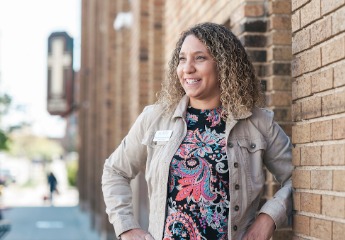Last summer, I took a friend out for lunch to celebrate her new job.
She was starting the following week and thrilled that this job came two important “wins” for her: a pay increase and additional vacation days. Hooray!
I asked her what made her change jobs and her reply was, “I loved my old company, but I needed a change.”
Fast forward to January and I received an email from her asking me to look at her resume. Apparently, the new job wasn’t living up to her expectations, despite the “wins” she said the company had that she was so excited about last summer.
Her story got me thinking. How can we do a better job making sure your next job is both a “win” on paper and a “fit” for your career? Because let’s be honest, the paycheck and the vacation time don’t make up for doing miserable work that doesn’t fit who we are.
The Value of Knowing the Right “Fit”
Do we need to be more intentional in the interview process making sure the company is first off, a “fit” for what’s important to us before we get swayed by benefits? Yes.
OK, before you protest, I know that paying bills is a powerful motivator. Some of us have probably accepted a job to keep the lights on. And really, who doesn’t think more vacation time is a plus? But let’s assume the pay and vacation time are what you want. What else should you be asking about before you make the job change?
Quite simply, do your research on the corporate culture and make sure it reflects in both words and actions what you value. One of the blessings of diversity is that we all place different levels of importance on different things. As a result, the company and role that is perfect for me might be the last industry or type of work that you would consider working in. And that’s perfectly OK.
Skills and experience are important, but does the company really “fit” you? Business literature is full of articles about how companies should attract, retain and develop employees that are aligned to the mission, vision, values and culture of their organization. We know the “cost” of a bad hire . . .
But why aren’t employees more concerned about connecting with the right company? What is the cost to your career if you take a role in a company that doesn’t fit your passions, values or the culture you value?
Is It the Right Fit for You?
So, how can you figure out if a company is a fit for you? Here are five things to consider:
1. Know What You Value
Take a good, long hard look at what is important to you as it pertains to your career, the type of work environment you value and how the role and company fit in your long-term goals.
2. Know What Isn’t a Fit
Knowing what you don’t want can also help guide your choices. Think through what type of boss you work well with, the work environment, the industry and the commute and many other factors that will make a big difference in your overall job satisfaction.
3. Be Realistic
No company or role is perfect all the time, so make sure your expectations are tempered with realism. The grass is only greener on the other side of the fence if you water it.
4. Find Out What Others Are Saying
Read their website. Ask current and former employees what the company is like. Make sure you are doing what you can to learn about the reputation and culture of the company.
5. Interview the Company
Yes, interviewing is always a two-way street. As a recruiter, I was always amazed by how seldom job seekers took the time to interview us as a company. Job seekers would ask about base pay but not ask about total compensation. They would ask about PTO, but not ask for examples of our values.
If this sounds like you, borrow some of the questions below and use them in your next interview:
- What do your employees say are the top three strengths and weaknesses of this company? What are you doing to address them?
- What will my first week or month look like at this company?
- What is the worst or best thing that has ever happened to this company? How did you handle it?
- Who are the most successful people in this company?
- Why do you work for this company?
Questions like these can help guide you in the interview to make sure you get a good picture of what the organization is about.
Know Before You Go
No company is perfect, but taking the time to know what you value and doing the research to find the best fit for you will go a long way to determining your success, job stability and satisfaction.
Be Equipped With a Program to Get You There
Is gaining practical knowledge, skills and experience your next step in pursuing your next career move? Discover how a degree program can empower you to chase those goals and enhance your professional development.










